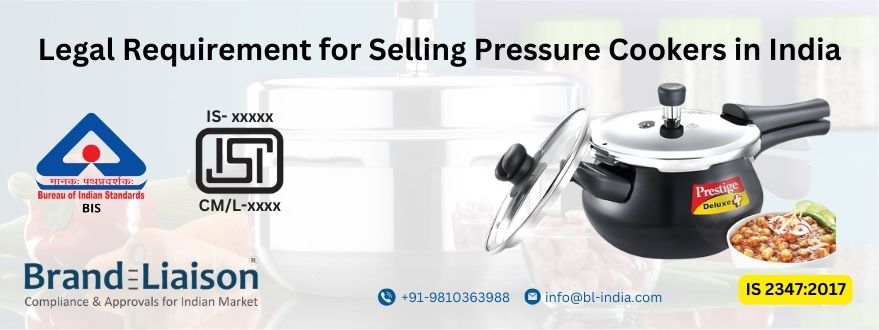
In the bustling and diverse market of India, selling kitchen appliances like pressure cookers can be a lucrative venture.
However, diving into this industry requires more than just a quality product and a keen understanding of consumer preferences.
To ensure a successful and legal business, it is essential to be well-versed in the regulations governing the sale of pressure cookers in India.
In this blog, we will explore the key legal aspects, focusing on the importance of compliance with the Bureau of Indian Standards (BIS) and the procedures for obtaining the ISI mark for your pressure cookers.
One of the primary requirements for selling pressure cookers in India is obtaining the BIS Certification.
The BIS is the national standards body of India, responsible for establishing product standards to ensure quality, safety, and reliability.
Pressure cookers fall under the category of household electrical appliances covered by the IS 2347:2017 standard, and it is essential for manufacturers to comply with the relevant Indian standards.
The certification process involves rigorous testing of various parameters such as material quality, safety features, and performance standards.
Once a pressure cooker meets the specified criteria, the ISI Mark will be granted, allowing the product to be legally sold in the Indian market.
The BIS Certification plays a crucial role for pressure cookers in India, such as:
Obtaining the ISI mark for pressure cookers involves a systematic process to ensure that the product meets the required quality and safety standards. Here is a step-by-step procedure:
Step 1: Application Submission
Step 2: Testing of Samples
Step 3: Factory Inspection
Step 4: Document Verification
Step 5: Granting of ISI Certification
Here is a list of the required documents for BIS Certification for pressure cookers:
Navigating the legal requirements for selling pressure cookers in India demands a thorough understanding of BIS standards and a meticulous approach to the certification process.
With the support of a reliable company, Brand Liaison, manufacturers can not only simplify this journey but also expedite it, ensuring that their pressure cookers meet all regulatory requirements for a successful entry into the dynamic Indian market.
We provide comprehensive guidance for manufacturers through the intricacies of compliance and contribute to the successful market entry of pressure cookers in India.